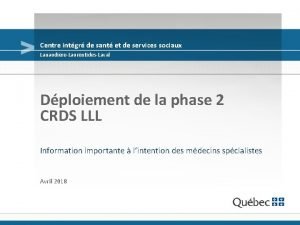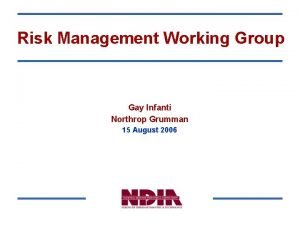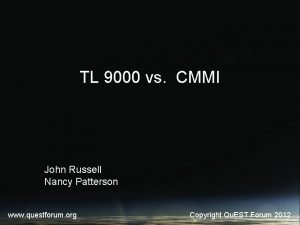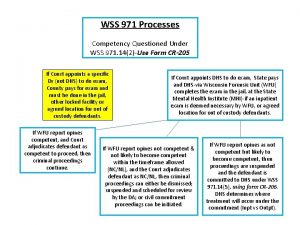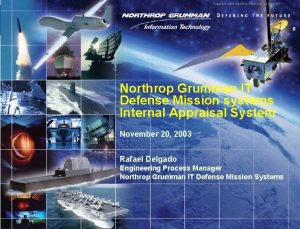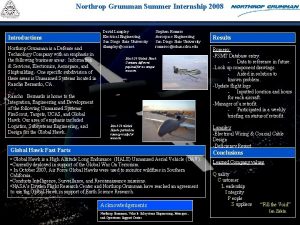Northrop pgs 7 11 Hughes pgs 971 975















- Slides: 15

Northrop : pgs 7 – 11 Hughes : pgs 971 - 975 MEASUREMENT ERRORS AND UNCERTAINTIES

Errors in Measurement • Types of errors in measurement : 1. Gross Errors – due to human errors 2. System Errors – due to technical errors

Gross Errors 1. Reading the instrument before it has reached its steady state. 2. Parallax error when reading an analog meter scale. 3. Mistakes in recording measured data and in calculating a derived measurand. 4. Misuse of the instrument.

System Errors 1. The instrument is not calibrated, and has an offset - Loss of calibration and zero error can occur because of long term component value changes due to ageing, or changes associated with temperature rise. 2. Reading uncertainty due to the presence of random noise. 3. Reading uncertainty due to slow, or long term drift in the system. Drifts can cause slow changes in system sensitivity and/or zero. Drift may arise as the result of a slow temperature change as a system warms up. Drift or system offset can also arise from dc static charges.

Definition of terms Error in nth measurement Error: deviation of the measured value from the true value. True value: standard or reference of known value or a theoretical value

• Accuracy, An of the nth measurement is defined as : Accuracy = closeness of a measurement to the true value Accurate measurements require the use of a precision measurement system which is calibrated against a certified, accurate standard.

The precision of the nth measurement is defined as: Precision: a measure of the reproducibility of the measurements; given a fixed value of a variable, precision is a measure of the degree to which successive measurements differ from one another i. e. , a measure of reproducibility or agreement with each other for multiple trials.

Tolerance: maximum deviation allowed from the conventional true value.

Resolution is related to the precision of the measurement and is basically the smallest unit of the measured quantity which can be reliably be detected. Oscilloscopes generally give poor resolution. Limiting Error (LE) is an important parameter used in specifying instrument accuracy. The limiting error, or guarantee error, is given by manufacturers to define the outer bounds or the expected worst case error. Example, a voltmeter is specified as having an accuracy of 2% of its full scale reading. If on the 100 V scale, the meter reads 75 V, The LE in this reading, V max = | V /V | V = 0. 02 x 100 = 2 V V max = (2/75) = 0. 0267 The limiting error in this reading = 2. 67% The reading is expressed as 75 V 2. 67%

Uncertainty analysis Any system that relies on a measurement system will involve some amount of uncertainty (doubt). The uncertainty may be caused by individual inaccuracy of sensors, limitations of the display devices, random variations in measurands, or environmental conditions. The accuracy of the total system depends on the interaction of components and their individual accuracies. Two methods are commonly used for determining the uncertainty. 1. Using limiting error 2. Square roof of sum of squares

Limiting Error in the calculation of the dc power in a resistor Power dissipated in the resistor with uncertainty = 6400 W 2. 6% or 6400 166. 4 W

Using Square Root of some of square

Analysing resistors in series R 1 R 2 Rs = R 1 + R 2, R 1 = 10 0. 5 , R 2 = 10 0. 5

Analysing resistors in parallel R 1 R 2

TRY EXERCISE : 13, 14, 19, 20, 21, 24 - HUGHES
 Hiren international mumbai office
Hiren international mumbai office Tel 971
Tel 971 [email protected]
[email protected] 975 16
975 16 Mark hughes jill hughes
Mark hughes jill hughes Northrop grumman
Northrop grumman Christine mascolo harvard
Christine mascolo harvard Northrop grumman amherst systems
Northrop grumman amherst systems Northrop grumman
Northrop grumman Northrop frye archetypes
Northrop frye archetypes Northrop
Northrop Linda northrop
Linda northrop John russell northrop grumman
John russell northrop grumman Electronic document exchange
Electronic document exchange Northrop grumman bacchus
Northrop grumman bacchus Madl data link
Madl data link


